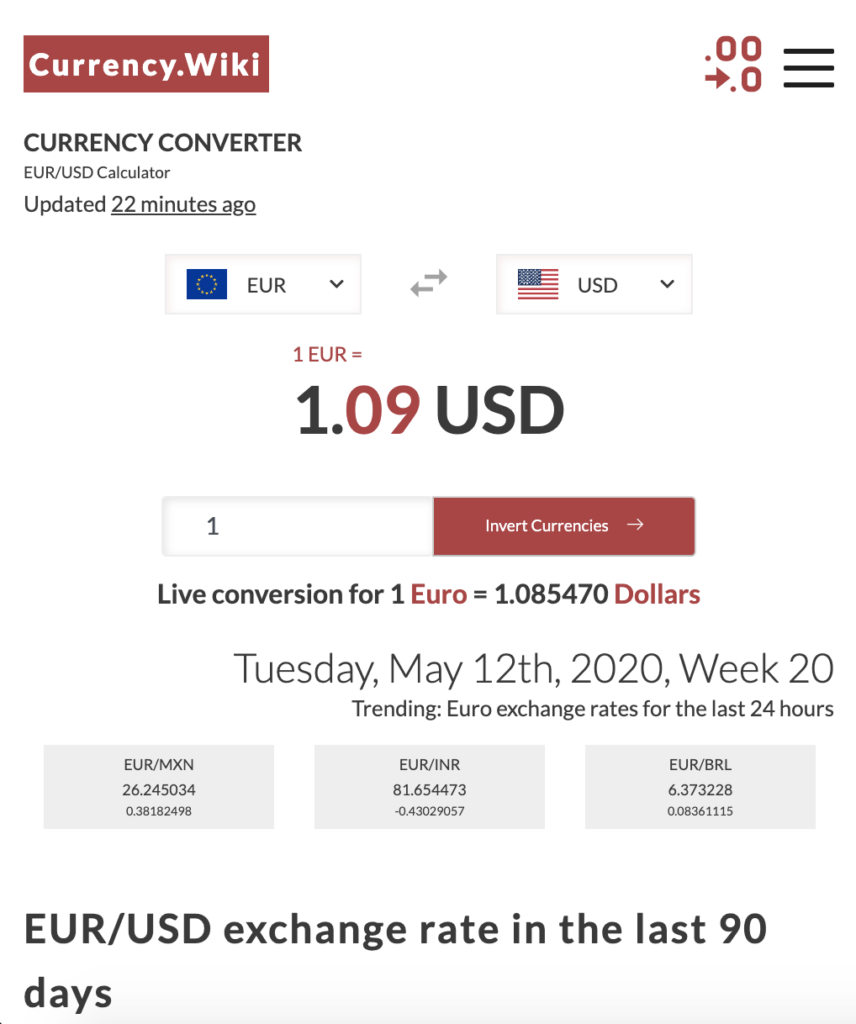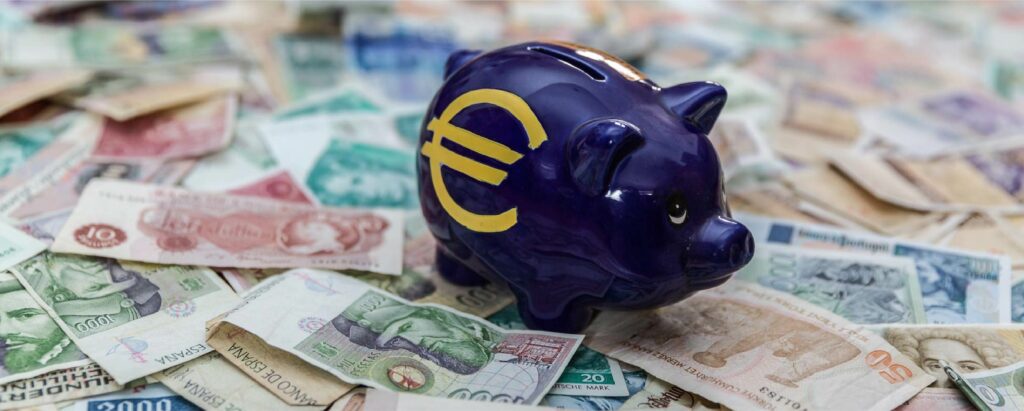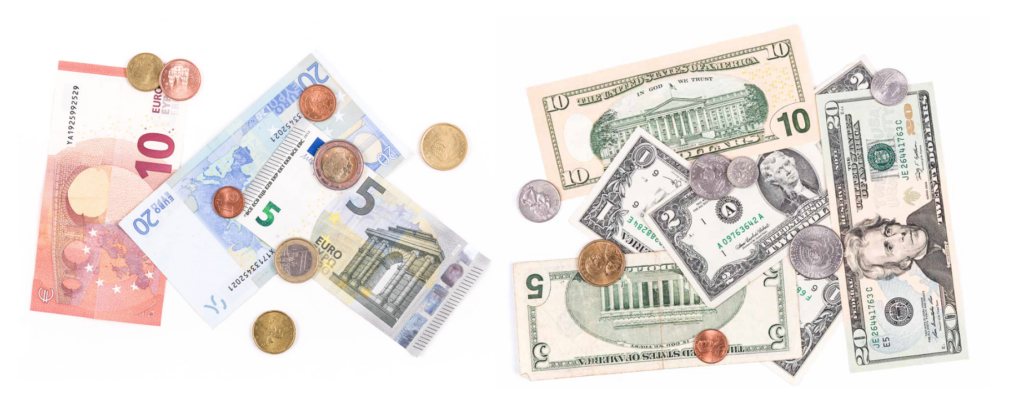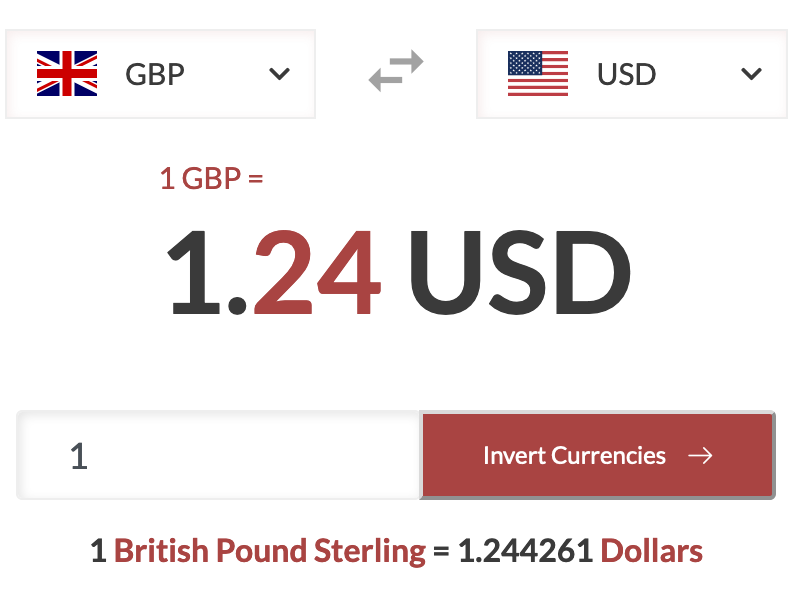Currency converters, also known as currency calculators: You’ll find them on many websites. Can you trust them and do they add up? We investigate and help you understand why not all currency converters show the same exchange rates.
What is a currency converter?
A currency converter is an online tool that helps users find out the value of a currency compared to another currency on a specific moment in time. The calculations are based on the currency exchange rates, which are determined in the foreign exchange market. Websites such as currency.wiki offer a currency converter for anyone to use free of charge.Most currency converters will have the following elements:- “Base” currency dropdown list (currency A)
- “To” currency dropdown list (currency B)
- Exchange rate from currency A to currency B
- Timestamp and information about when the rate was last updated
Many currency converters use 3-letter codes, so called ISO 4217 currency codes or simply ISO codes. These are a list of internationally used abbreviations for national currencies, for example “EUR” is the ISO code for the Euro and “USD” is the ISO code for the US dollar. These currency ISO codes are useful because they have a simple, 3-letter standard format and they are the same in every language.

Do all currency converters show the same exchange rates?
The answer is no. If you input the same currency pair on two different currency converters, you’ll likely see two different exchange rates, even if you time the two calculations to the exact same second. Here’s why:Update frenquency
Exchange rates are in constant fluctuation: They can change multiple times every second. The exchange rate on your screen may have been collected the last time the currency collector’s exchange rates were updated. Different currency converters have different update schedules. They can be as frequent as once per second, or as infrequent as once per day.Data sources
Different currency converters use different data sources. They are usually documented on an About page or in the FAQs. The update frequency of a data source is an important factor. If for example a currency calculator’s data source is updated on a daily basis, and the currency calculator is updated on a daily basis, it’s possible that the data in the calculator is two days old.Purpose
The purpose of a currency converter determines what type of exchange rate is shown. If the purpose is merely informational, the exchange rate will typically be the mid-market rate. But if a currency calculator is used in a commercial context, for example for money transfers or for buying and selling currency, the rate shown may be a BUY rate or a SELL rate, which is different from the mid-market rate because the vendor has applied a so-called spread.Data delay
Many free-to-use currency converters apply a data delay. That means that the exchange rates shown, even when freshly updated, are typically 5 to 15 minutes old. So-called real-time currency converters used by currency traders often come with a costly subscription. If you are using a free version, the length of the data delay is another reason why the exchange rate may be different to the rate shown on other currency converters.
Do they add up? Which currency converter should I use?
When choosing a currency calculator, make sure that the purpose of your query fits the purpose of the calculator. If you want to know a mid-market exchange rate, don’t use a currency calculator on a travel money website or one on a money transfer website.Ask yourself what you want to use the currency converter for. If you want to trade currency on the foreign exchange market, you’ll need to consider using a paid-for currency rates service with real-time information without delays.If you’re after general information about the value of one currency to another, you’ll be fine with most free-to-use currency converters. Here are a few things you can look out for when comparing currency converters:
- Is there a page with information about the data sources, the update frequency and the data delay?
- How recent is the latest exchange rate update?
- Is the currency converter user friendly and accessible without distracting ads?
- Is it possible to access historical data and see charts?

 Loading
Loading